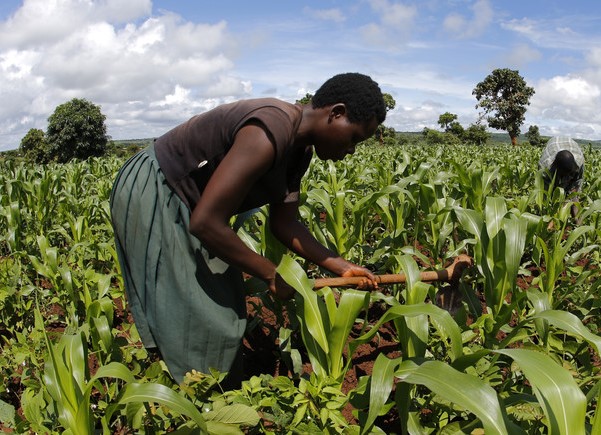The U.S. Department of State, Office of the Special Envoy for Global Food Security, in partnership with the African Union (AU) and Food and Agriculture Organisation of the United Nations (FAO), has launching the “Vision for Adapted Crops and Soils” (VACS) — a multi-phase initiative grounded in the objectives of Feed the Future that will improve global food security.
The Rockefeller foundation, the Columbia Climate School, and the African Orphan Crops Consortium are also collaborating.
VACS will seek to support African governments, farmers, agricultural researchers, and civil society organisations as they prepare the continent’s food systems for the challenges posed by climate change.
The initiative will identify the most nutritious crops in each of the African Union’s five sub-regions, assess the expected challenges posed to those crops by climate change, and seek to boost public and private investments to adapt those crops to anticipated effects of climate change.
The U.S. Office of Global Food Security will also emphasise the critical role of soil health and fertility in determining the future success and sustainability of food systems.
According to the U.S Department of State, African countries are suffering the worst effects of the global food security and global climate crises.
“Prolonged flooding and droughts diminish agriculture and restrict access to nutritious food across sub-Saharan Africa, home to millions suffering from food insecurity and malnutrition,” U.S. Special Envoy for Global Food Security Cary Fowler.
“It will focus on mapping soils to provide farmers more information on how to increase productivity with their soil type, as well as help identify crops that will thrive in Africa’s five sub-regions as climate change has increasingly adverse impacts on agriculture.”
Fowler added; “There is no such thing as food security or good nutrition without these two fundamental elements,” said during the Wednesday announcement in Washington.
“I’ve been concerned for many years about the deep challenges that our agricultural crops are going to face in the era of climate change,” he said at the launch event. “Climate affects every part of the plant, it affects every part of the growing season, and making those kinds of adjustments are not trivial.”
There are three stages in the initiative: identifying the most nutritious crops, analysing how climate change will affect them, and increase public and private investment in crop adaptation.
Currently, research is highly concentrated on staple crops, which makes others that are important for nutrition but are less studied by plant breeders more vulnerable.
“If we have a diversity of crops growing … then we can begin a virtuous cycle of improving soil, improving our response to these kinds of drought situations, and improving nutrition,” Fowler said.








